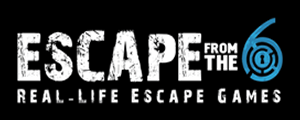
Companies often organize corporate team building events to achieve various goals that contribute to enhancing teamwork, communication, and overall team effectiveness. Through these events, companies hope to inspire teams to effectively navigate challenges and contribute to the success of the organization. Traditional team building events can include activities like trust falls, problem-solving exercises, and outdoor challenges. They typically take place in a more relaxed environment away from office cubicles, such as conference rooms, outdoor facilities, or at retreats. Escape rooms can offer a change in pace and scenery from a traditional corporate team building event while promoting communication, critical thinking, problem-solving, and collaboration among team members.
Here is a comparison of how escape rooms and traditional activities contribute to team building:
Fostering Team Collaboration
Working together harmoniously and efficiently among team members is essential for an effective organization.
Participants in escape rooms have a common objective: to solve problems and escape the room within a given time. Success in escape rooms often relies on the interdependence of team members. Teams must pool their skills and ideas to overcome obstacles and successfully complete tasks. The time pressure in escape rooms creates a sense of urgency. Through this, teams learn to work efficiently under pressure. An escape room fosters a sense of shared purpose among team members and encourages collaboration toward a specific goal.
Traditional team building activities offer a diverse range of exercises that target different aspects of teamwork. Activities may include trust-building exercises, problem-solving challenges, and communication drills. The debriefing sessions conducted after the activities encourage team members to reflect on their collaborative experiences. Through these activities, team members learn to collaborate effectively while recognizing and respecting leadership roles.
Improving Communication Skills
Effective communication in the workplace involves active listening, expressing ideas clearly, and understanding each other’s perspectives.
Escape rooms require participants to communicate effectively in real-time. Teams must convey information, share observations, and coordinate actions to solve puzzles and progress through the challenges. Communication in escape rooms is task-specific, focusing on solving immediate challenges and achieving the common goal. Participants practice concise and relevant communication, emphasizing clarity in conveying information. As challenges evolve, teams need to adapt their communication style and strategies. Participants learn to interpret and use non-verbal communication cues, fostering a more nuanced understanding within the team. In escape rooms, the consequences of actions result in immediate feedback. This allows teams to assess the effectiveness of their communication during and after the session.
Many traditional team building activities include exercises specifically designed to improve verbal communication. Participants engage in activities that require clear articulation of ideas, active listening, and effective verbal interactions. These enhance the participants’ ability to listen attentively and process information effectively. Some exercises simulate conflict scenarios, providing opportunities to practice constructive communication in challenging situations. In debriefing sessions, teams can discuss communication patterns, challenges faced, and strategies for improvement.
Building Trust and Relationships
Building trust is crucial for effective collaboration and a positive team environment. Trust-building exercises, team challenges, and shared experiences create bonds between team members.
Escape rooms provide a shared, immersive experience that team members go through together. Shared challenges and achievements contribute to building a sense of camaraderie and trust among participants. Since success in an escape room depends on the interdependence of team members, participants learn to trust each other’s skills, insights, and contributions. Overcoming the challenges of an escape room builds resilience and reinforces trust in the team’s ability to handle difficulties. As teams successfully escape, celebrating their success reinforces positive relationships and fosters trust in each other’s capabilities.
Traditional team building activities often involve challenges that require collaboration and mutual support to build trust and strengthen relationships. Traditional activities may also rely on debriefing sessions and open discussions to allow team members to share their thoughts, feelings, and experiences as well as personal experiences or aspects of their lives. The open communication helps in building personal connections and understanding among team members.
Both escape rooms and traditional team building activities provide opportunities for team bonding and collaboration. Escape rooms facilitate team building through a shared goal, interdependence, and time pressure while traditional activities may offer a broader range of exercises, such as focused discussions and specific exercises and simulations. Unlike traditional activities, escape rooms have cohesive themes for their activities and immerses participants into a story. Ultimately, the choice between escape rooms and traditional team building events depends on the goals of the team building exercise and the dynamics the organization wants to foster within its team.
